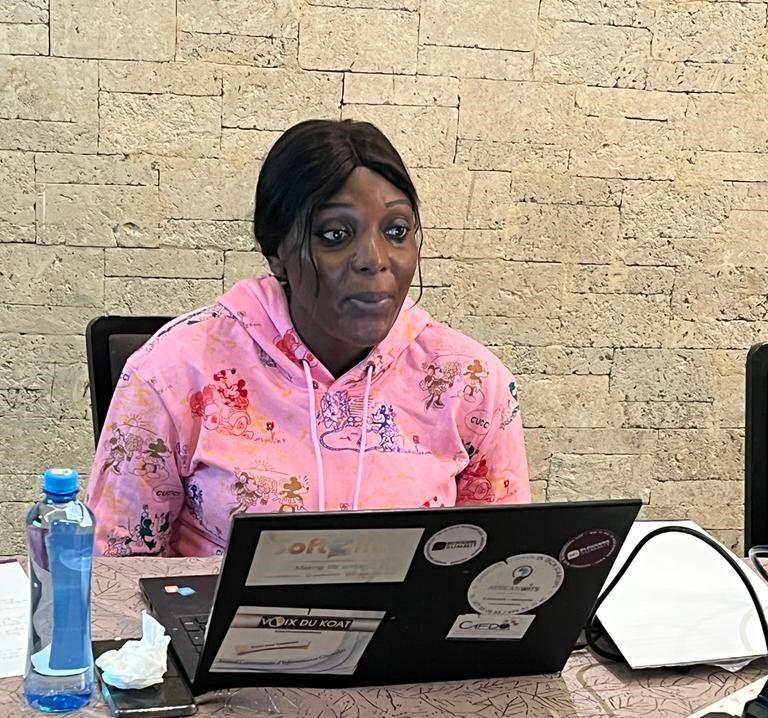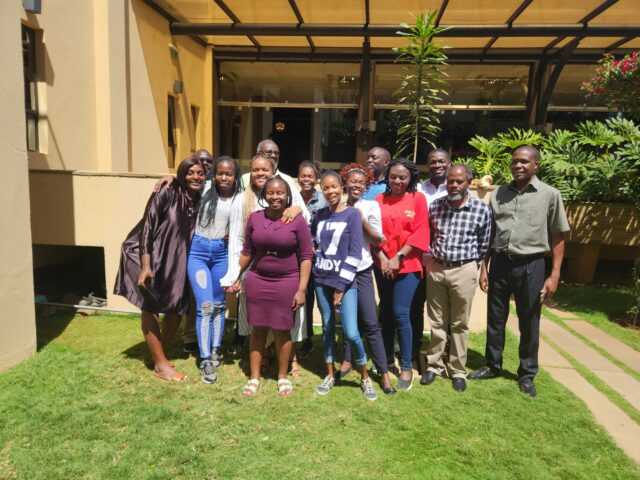From 29 May to 9 June 2023, the Kenyan city of Nairobi hosted a training course for African journalists on the theme of “Investigating illicit financial flows (IFFs) in Africa”. Journalists from a dozen English- and French-speaking countries took part in the ten-day course. It was organised by the Thomson Reuters Foundation. The French-speaking journalists were trained by a team of two Burkinabe journalists: Elie Kaboré, Managing Editor of the Minesactu.info website, who specialises in the mining sector and IFFs, and Arnaud Ouédraogo, Coordinator of the Norbert Zongo Unit for Investigative Journalism in West Africa (CENOZO) and also an investigative journalism trainer.

Ghislaine Deudjui, a journalist from Douala in Cameroon, says: “It’s always a pleasure for me to take part in this type of training, which enables us to strengthen our capacity. I’ve come away enriched with tools and techniques that will enable me to carry out my investigations, both in the extractive sector in Cameroon and in other sectors related to IFFs. This course is very interesting, especially as the approach chosen by the Thomson Reuters Foundation is also a good one in that it leads to the production of a survey at the end of the course”.
While the first part of the course dealt with the concepts of IFFs and the search for sources, the second part focused on investigative journalism techniques and the protection of sources.
During the first part, participants were able to deepen their knowledge of the notion of IFFs and other related concepts. They were introduced to the language of economics. Tax concepts were also covered. During this part of the course, they were also given presentations on techniques for detecting economic crimes that could be the start of an investigation. Generally speaking, the training enabled participants to detect IFFs, to approach them from the angle of origin, causes or favouring factors, scale, manifestations, perpetrators, victims, impact, destination, and the measures put in place to combat them. Finally, the identification of sources of information (where to find information and data?) for investigating IFFs was addressed. Each module ends with the presentation of case studies and practical exercises. The mining sector, which generates large financial flows, was discussed. Participants were given a presentation on recurring failings, sources of information, etc.
The second part of the course dealt with general aspects of journalism in Africa, comparing traditional journalism with investigative journalism. A reminder of the different genres and formats, the experiences of investigative journalism organisations, questions of ethics and deontology, case studies of investigations were presented, as well as the research and formulation of the subject, sources, storytelling and the safety of journalists. Many exercises were covered during this part of the course.
Prior to the training, each participant presented a survey topic to the Thomson Foundation, Reuters. These topics were discussed during the course. On their return to their home countries, the journalists will continue their investigations under the guidance of a mentor. In addition to the knowledge acquired, this training was a good opportunity for participants to network and share experiences.
P B










